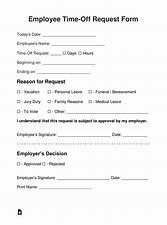Below is a review of the posts (on Facebook, LinkedIn, and Twitter) from the past week. You can check out the full posts by clicking on the links.

In the post on Sunday 5/16/21 we learned about the top mistakes employers will make in 2021. Hopefully you will not fall into any of this quicksand … The first area is failing to prepare and update a COVID response plan. Vaccinations do not get you as an employer out of the woods. You need to protect your employees and customers. And for those that are not vaccinated? See the post. The next patch of quicksand is allowing telecommuting (remote work) without a proper policy or system in place. Your employees may have been working from home for a while, but because they had to, right? Now they might want to keep working remotely, or you might want them to continue to work remotely. So, what needs to happen? See the post. There are also 4 other types of quicksand that employers might step into; see the post for what they are and how to avoid them.
TAKEAWAY: There are a lot of laws and regulations that employers must follow; COVID merely created an overlay for all of them. Know your rights and obligations and get assistance from an employment lawyer.

The post on Monday 5/17/21 said a worker did not follow FMLA request policy so a court oks her firing. This was a “local” case; the employer is Penn State Health. Kelly Soutner was working there and needed FMLA leave. The employer had a procedure for FMLA leave – it is noted in the post. Soutner did not follow the policy and do was given (disciplinary) points. When she reached the max allowable points, she was discharged. She sued, claiming FMLA interference and retaliation. The case went up on appeal form the trial court. How and why the court ruled as it did are in the post (and should reenforce a “duh” kind of moment).
TAKEAWAY: Policies and procedures that are in place must be followed; if not, then the employer may have a complete defense to suit by an employee.

The post on Tuesday 5/18/21 showed us that the EEOC alleges an IHOP manager conditioned leave & scheduling on accepting sexual advances. Just icky. The IHOP in question is in Frederick, MD. The EEOC alleges that the manager subjected female employees to unwanted advances and touching and more (yes, more!) as listed in the post. And the manager also allegedly conditioned decision on leave requests, scheduling and more (again, yes, more!) on the employees submitting to his sexual advances. But that’s not all – the EEOC also alleges that the company that operates the franchise knew about the harassment. How it new and what it did are in the post. When the EEOC issued a press release about the suit, it noted another key thing the company did – or in this case, did not do. See the post.
TAKEAWAY: Know the law. Train your managers so they too know the law and what they can ad cannot do or say – and fire those who don’t comply.

From the post on Wednesday 5/19/21 we hear: “Look at that right on our lawn!” Woman taking her ’emotional support PIG for a walk is accosted. We asked what would happen in your condo or homeowner’s association. Remember the difference between service animals (dogs and miniature horses) and emotional support animals (which could be literally any type of animal). Here a woman had a pig as an ESA and was taking it for a walk. Another woman apparently threw a fit over the size of the pig and its feces. The post has photos and a VID. The “conversation” (we are being nice) that ensued is in the post. Clearly the pig had enough when the woman starts griping about the pig “eating the landscape”, so it … see the post. And then we find out that the woman is probably a busybody (you know the type, they must know just EVERYTHING that happens in the neighborhood) and needs something to do; and what she says that will be is in the post. How does the VID end? Watch it through the link in the post.
TAKEAWAY: Planned communities can and usually do have restrictions on pets, but federal (and state) law on emotional support animals trumps any such restrictions. Know the law and get help from a community association lawyer.

In the post on Thursday 5/20/21 we were on the condo/HOA homefront: Is the Association’s insurance coverage sufficient? And why owners should care. In any planned community, owners and the Association each must carry certain insurance; the Association’s obligation is usually spelled out in the Governing Documents. Do owners ever ask about the insurance carried by the Association BEFORE it matters? Probably not. And that could end up costing the owner a lot. The questions that should be asked about the Association’s coverage include whether there is a deductible and the amount (because that is a common expense), what type of exclusions are there in the policy (because repairing or replacing the things that are excluded may well be another common expense), and several other questions noted in the post. This might be especially important in a condominium association for the reason noted in the post.
TAKEAWAY: Both the Association and owners must know what coverage the Association has – and what coverage it does not have – and whether there is compliance with the Governing Documents. Know before it matters.

The post on Friday 5/21/21 reminded us that employers risk ADA liability by relying on faulty medical exams. Yes, an employer can lose a disability discrimination suit if it relies on doctors or other professionals who issued biased or otherwise flawed opinions. This case comes out of Pittsburgh; a city police officer sued when the City revoked an offer of employment based on a psychologist’s allegedly biased view of the applicant’s mental fitness. Really. So now the case goes back to the federal trial court and heads to trial (if it doesn’t settle first). Why did the court rule that way? See the post. And on what was the Court’s ruling based? A 2002 US Supreme Court case noted in the post that lays out the type of evidence necessary to support reasonable medical conclusion in an ADA case. Since the ADA focuses on an individual, it is important to have the proper evidence – see the post for examples from other appellate cases.
TAKEAWAY: Employers must know what is needed to offer a medical defense in an ADA case – get assistance from an employment lawyer early on.

and retaliation: employee must meet
initial threshold
Finally, in the post yesterday 5/22/21, we learn that a worker’s ADA suit runs out of air: federal court dismisses failure to accommodate and retaliation claims. The employee here is US Steel; it was sued by Raymond Carr III, a former employee with COPD. Carr worked on the “hot side” of a steel-making facility for 22 years. IN August 2015 he was laid off when that side of the plant was closed. He then held s few different jobs with the employer as noted in the post. IN the last one, he experienced medical issues and told the medical staff about his COPD. What they did next is in the post. Carr and the company went back and forth on his medical ability to work and his request for accommodation (all of the action is noted in the post). There was finally a medical diagnosis and accommodation meeting. Since there was no permanent position that met his requirements, he eventually retired. Then Carr filed a charge with the EEOC for failure to accommodate under the ADA. The basis behind the charge is noted in the post. He ended up filing suit. Unusually, this case did not get past the first prong: whether Carr was a qualified employee with a disability. The court’s analysis is in the post and proves instructive for employees and employers alike. The court then addressed the retaliation claim (part of which was procedural – see the post) which, again, is instructive.
TAKEAWAY: There is usually no issue as to the person being a qualified individual with a disability, but employers should not just automatically skip looking at that threshold – get legal assistance too.

 York, Pennsylvania 17403
York, Pennsylvania 17403